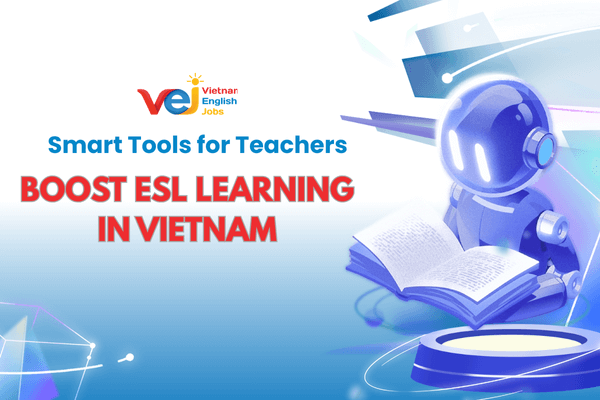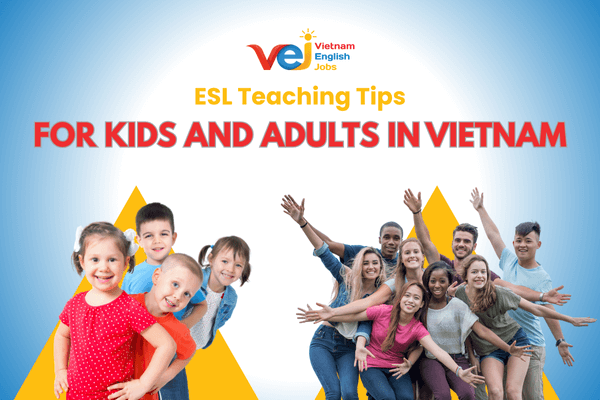How to Apply for a Vietnam Work Permit as a Foreign Teacher
If you’re planning to teach in Vietnam, one of the most important legal requirements is obtaining a Vietnam Work Permit. This document allows you to work legally in the country and is usually required for both full-time and part-time teaching positions. The process may seem overwhelming at first, but with the right preparation, it can be straightforward.
In this guide, we’ll walk you through how to apply for a Vietnam Work Permit as a foreign teacher, including eligibility, required documents, and step-by-step procedures.

1. Do Foreign Teachers Need a Work Permit in Vietnam?
Yes. According to Vietnamese labor law, foreign nationals must have a valid Work Permit to be employed in Vietnam, unless they qualify for an exemption (e.g., teaching for less than 3 months or working under certain cultural exchange programs).
Without a Work Permit:
- You cannot work legally.
- Both you and your employer may face penalties.
2. Eligibility Requirements for Foreign Teachers
To be eligible for a Vietnam Work Permit as a teacher, you must meet these basic conditions:
- Valid Job Offer: A contract with a recognized school, language center, or educational institution.
- Qualifications: A university degree (preferably in education, English, or a related field).
- Teaching Certificate: TEFL, TESOL, CELTA, or equivalent is usually required.
- Experience: At least 3 years of relevant teaching experience (may vary by institution).
- Health Status: A valid health check confirming you are fit to work.
- Clean Criminal Record: A police clearance certificate from your home country or Vietnam.
3. Documents Required for a Vietnam Work Permit
When applying, foreign teachers typically need to prepare the following:
- Application form (provided by your employer).
- Passport (valid for at least 18 months, with visa).
- Health check certificate from an authorized Vietnamese hospital.
- Criminal record (from home country or Vietnam).
- Degree certificate (Bachelor’s degree or higher).
- Teaching certificate (TEFL/TESOL/CELTA).
- The C1 English Certificate (TOEIC, IELTS, TOEFL, or EF SET)
- Photos (recent, 5 pics size 4*6 - white background )
- Work experience confirmation (if required).
Important: Some documents from abroad must be notarized, consular legalized, and translated into Vietnamese before submission.
4. Step-by-Step Process to Apply for a Vietnam Work Permit
Step 1: Employer Submits Application Early
- At least 60 days before (but no later than 10 days before) the foreign teacher’s expected start date, the employer must submit the application for a Work Permit.
- Submission can be made directly, via postal service, or through authorized representatives to the Public Administrative Service Center in the province where the teacher will work.
- Major Change: The procedures for reporting foreign labor demand and applying for work permits are now merged into a single application.
Step 2: File Transfer to Authorities
- The Public Administrative Service Center will transfer the application to the competent labor authority (DOLISA) through the one-stop administrative system.
- Applications can also be tracked via the National Public Service Portal.
Step 3: Processing Time
- Within 10 working days from the date of receiving a complete application, the competent authority will review and issue the Work Permit.
- If the application is not approved, the authority must issue a written reply within 3 working days, clearly stating the reasons.
Step 4: Receive Work Permit
- Once approved, the foreign teacher will be granted a Work Permit valid for up to 2 years, tied to their employer and job position.
5. After Getting Your Work Permit: Next Steps
Once you have a Work Permit, you can apply for a Temporary Residence Card (TRC), which allows long-term residence without frequent visa renewals. Many foreign teachers find this step essential for convenience.
6. Common Challenges and Tips
- Document legalization: Start early, as this process can take weeks in your home country.
- Employer support: Work with schools or agencies experienced in hiring foreign teachers, they usually handle most of the paperwork.
- Stay updated: Regulations can change, so always confirm requirements with your employer or DOLISA.
Applying for a Vietnam Work Permit as a foreign teacher may seem complicated, but with the right preparation and employer support, it’s a manageable process. Make sure your documents are legalized, your qualifications meet the requirements, and you apply on time.
By securing a Work Permit, you can teach legally, live confidently, and enjoy Vietnam without worries about compliance issues.

















